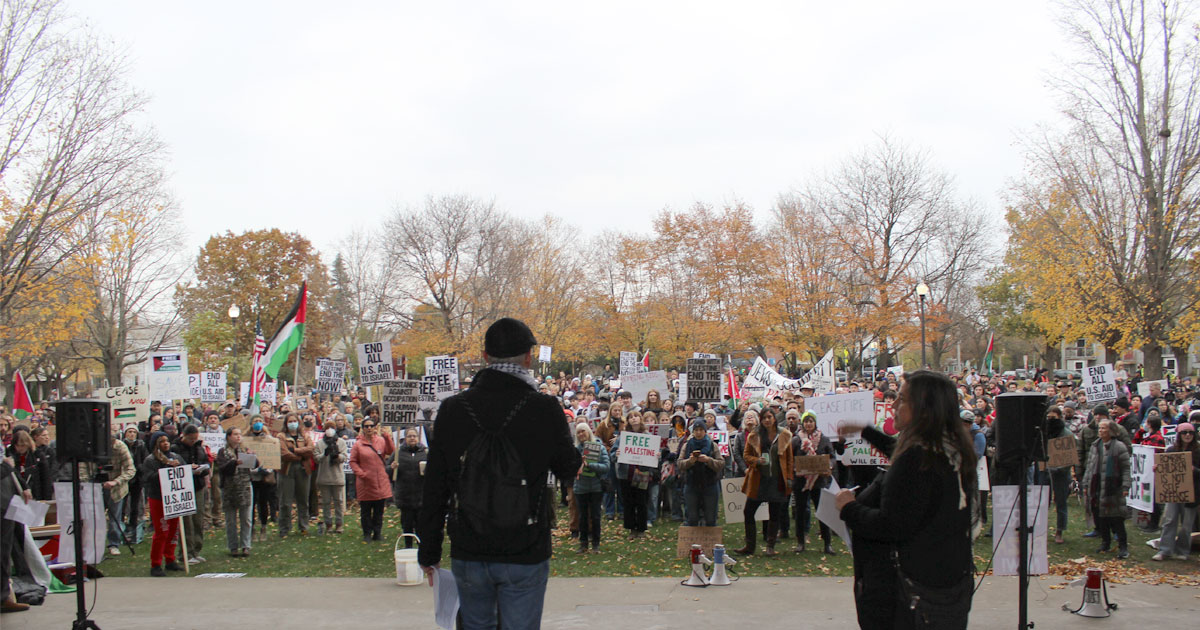Over 1,000 gathered and marched from Battery Park through downtown Burlington on Saturday afternoon to support human rights for Palestinians and oppose Israeli apartheid as the ongoing bombing, siege, and invasion of Gaza — and escalating violence against Palestinians in the West Bank — continues.
Category: News & Analysis

Below is a selection of upcoming events in Vermont relevant to the left.
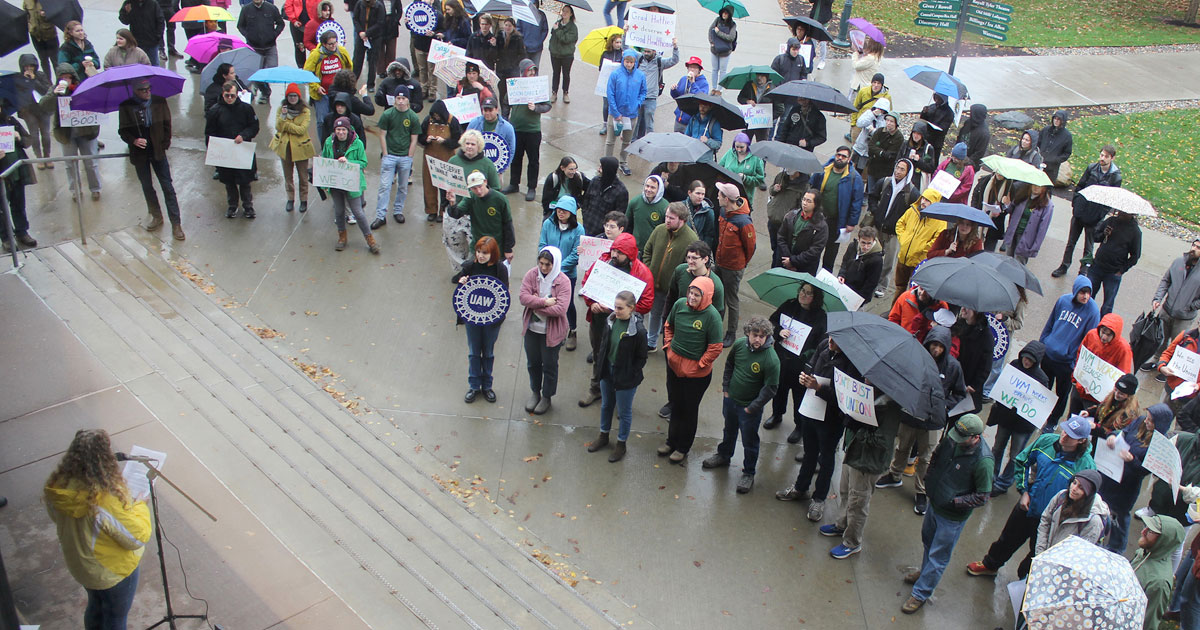
Halloween-themed signs and chants accompanied yesterday’s rally in support of unionizing graduate student workers at the University of Vermont. Despite the rain, more than one hundred grad students and allies attended the event.

UVM administrators have abruptly canceled the appearance of Mohammed el-Kurd, a Palestinian journalist and poet, mere days before his scheduled event, citing safety and security concerns, but campus community members aren’t satisfied with that rationale.

“Free, free Palestine!” echoed across downtown Burlington Saturday afternoon as more than 200 gathered at a rally on the steps of City Hall to oppose Israeli apartheid and support justice and human rights for Palestinians.
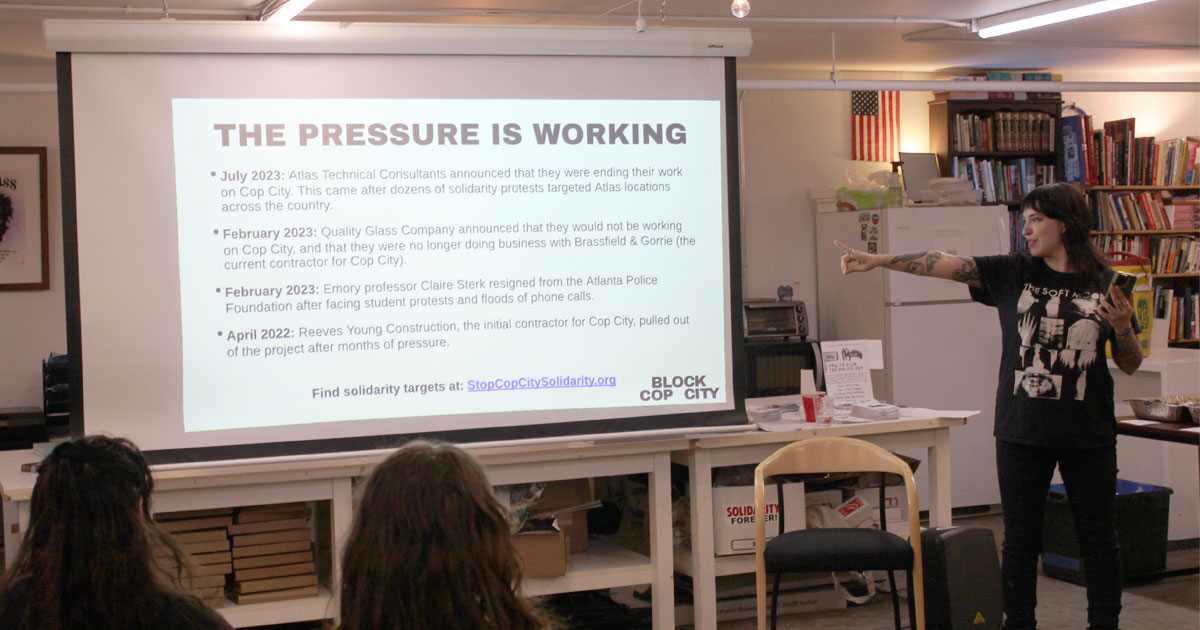
Organizers in the movement against Cop City — the proposed police training center in Atlanta that is estimated to cost $100 million, clear cut large swaths of forest, and disrupt Black communities surrounding it — are in the midst of a nationwide tour, speaking in more than seventy cities to educate the public and encourage participation in a demonstration planned for November 10-13 in Atlanta.

Below is a selection of upcoming events in Vermont relevant to the left.

Amid chants of “Milk with dignity!” roughly one hundred farmworkers and supporters assembled on Thursday for an informational picket and rally near the Hannaford supermarket
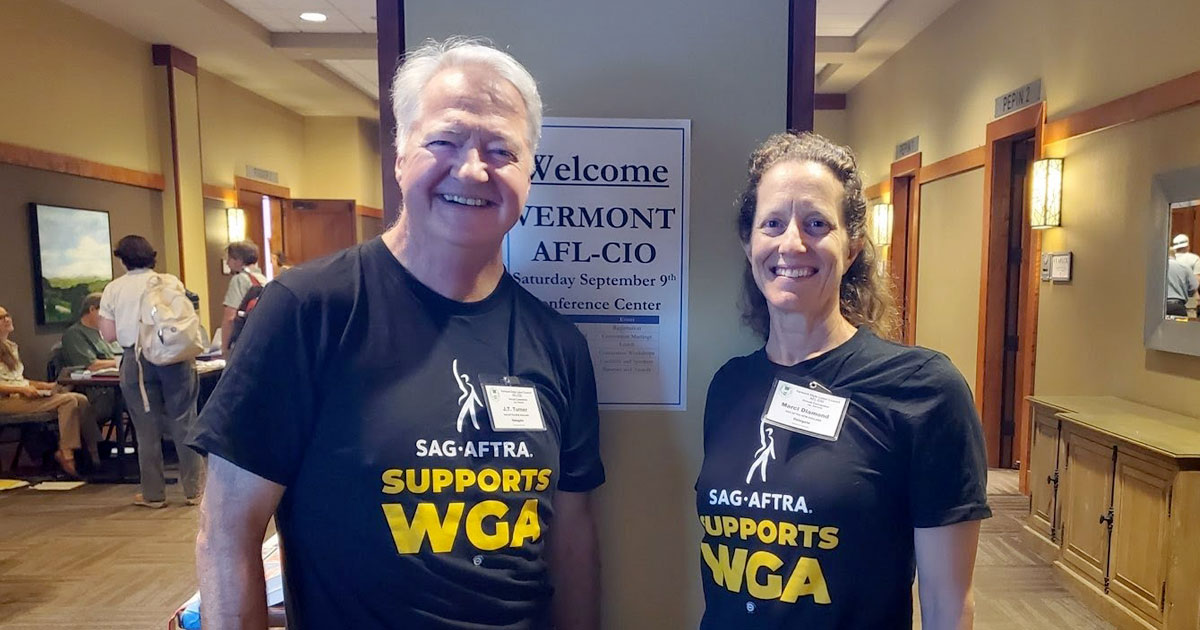
It’s common to think of these professions as solely within major media markets and hubs like Los Angeles and New York, but SAG-AFTRA members can also be found across New England. We spoke via email with two Vermont-based members, Marci Diamond and J.T. Turner, about their work, the strike, and how Vermonters can get involved.

Below is a selection of upcoming events in Vermont relevant to the left.
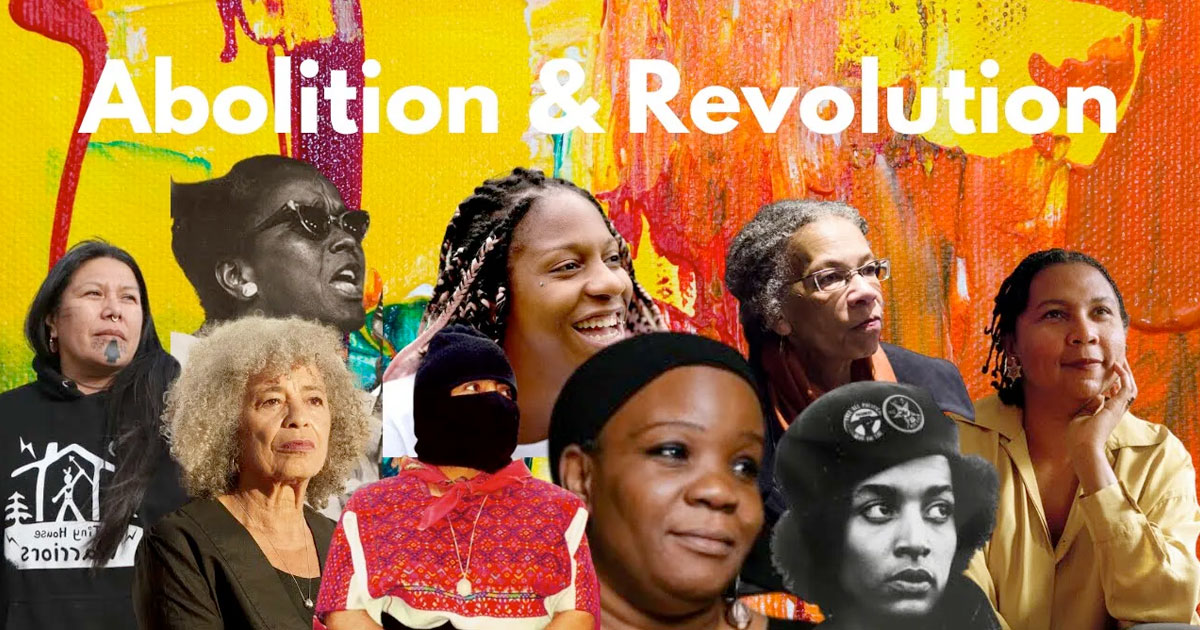
A new documentary made by a local filmmaker has ambitious aims. Bookended with words from Assata Shakur and Angela Davis, “Abolition & Revolution” attempts to ground the present political crises with their roots in history, not just to better understand our present context but to learn how to change it.
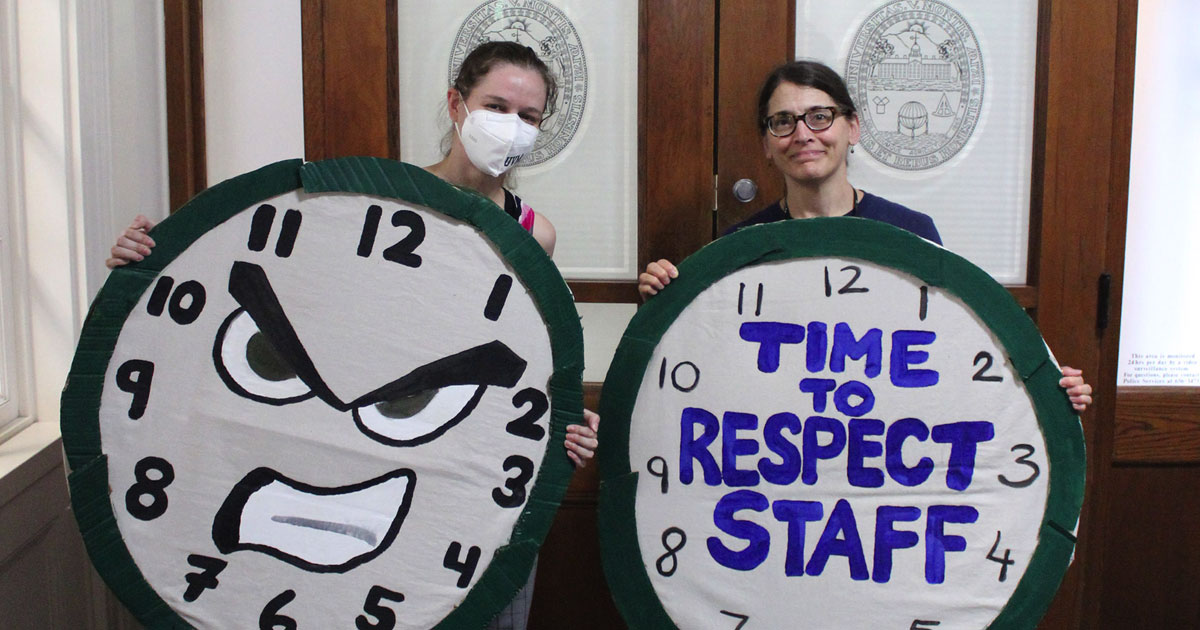
Last Thursday, in the halls of the Waterman Building on the campus of the University of Vermont, dozens of staffers across various departments — from biology to residential life — lined the hallways outside the executive offices of the school, laptops open, diligently at work. This “work-in” was held to object to UVM’s proposed implementation of new time-tracking software on roughly 700 staff.

Below is a selection of upcoming events in Vermont relevant to the left. Have an upcoming event? Let us know.

Perhaps unlike the rest of the state, the Queen City features several commissions with an unclear mission to the broader public. Within the walls of these meeting rooms sit power and direct access to many city officials, something The Rake will examine.

Below is a selection of upcoming events in Vermont relevant to the left. Have an upcoming event? Let us know.

Below is a selection of upcoming events in Vermont relevant to the left.
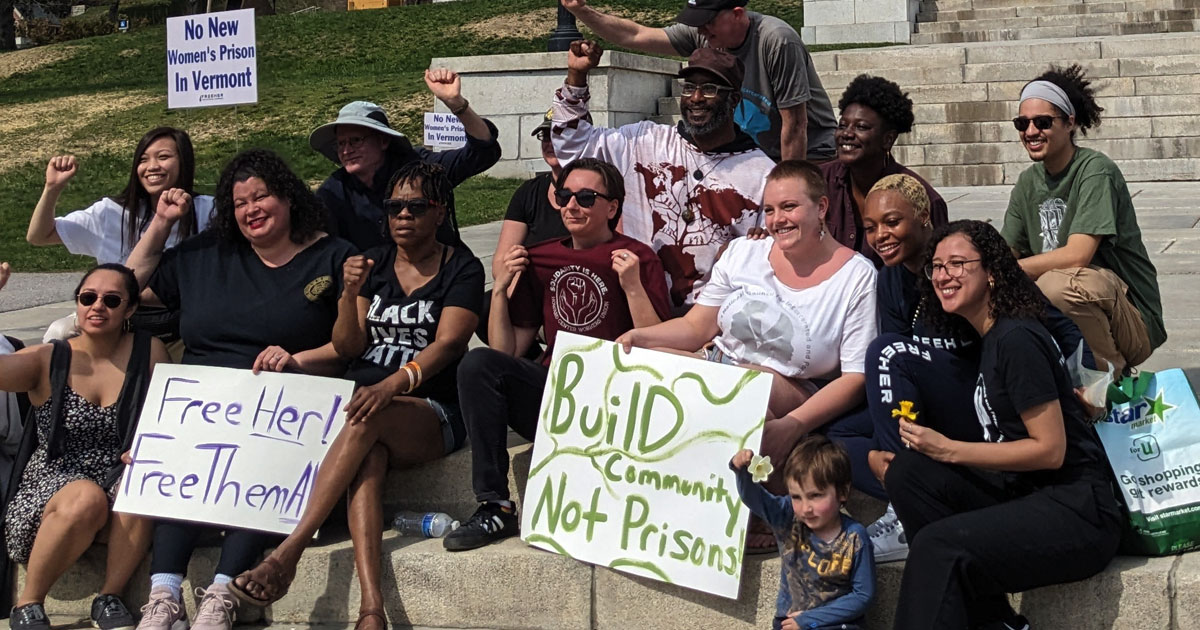
The FreeHer Campaign has been pushing for the decarceration of women in Vermont and throughout New England. The Vermont campaign has been canvassing, running phone banks, and organizing events to mobilize the community.

Below is a selection of upcoming events in Vermont relevant to the left. Have an upcoming event? Let us know.
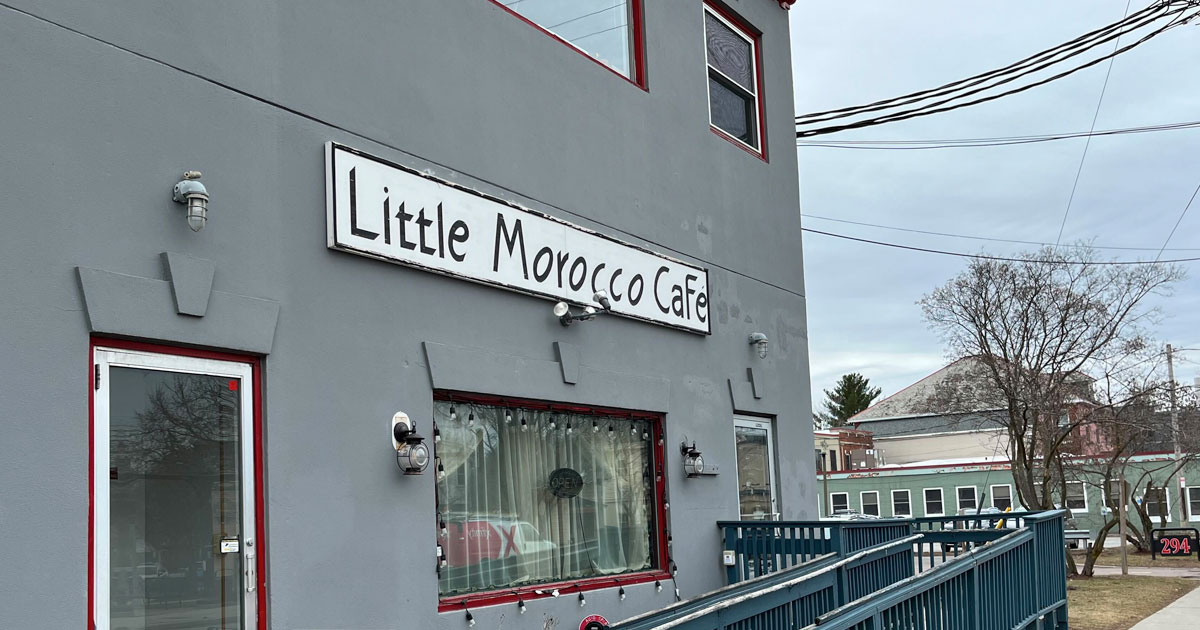
When Ali Amani received his lease renewal agreement last month, he was shocked. Amani, who manages Little Morocco Cafe in the Old North End, read that his monthly rent would increase from $1,875 to $5,000 as of July 31, 2023.

Content warning: This article contains text describing the sexual assault, rape, and abuse of minors.
The State of Vermont has agreed to a $4.5 million settlement in a civil lawsuit filed in December 2021 on behalf of seven youth formerly lodged at Woodside Juvenile Rehabilitation Center.

